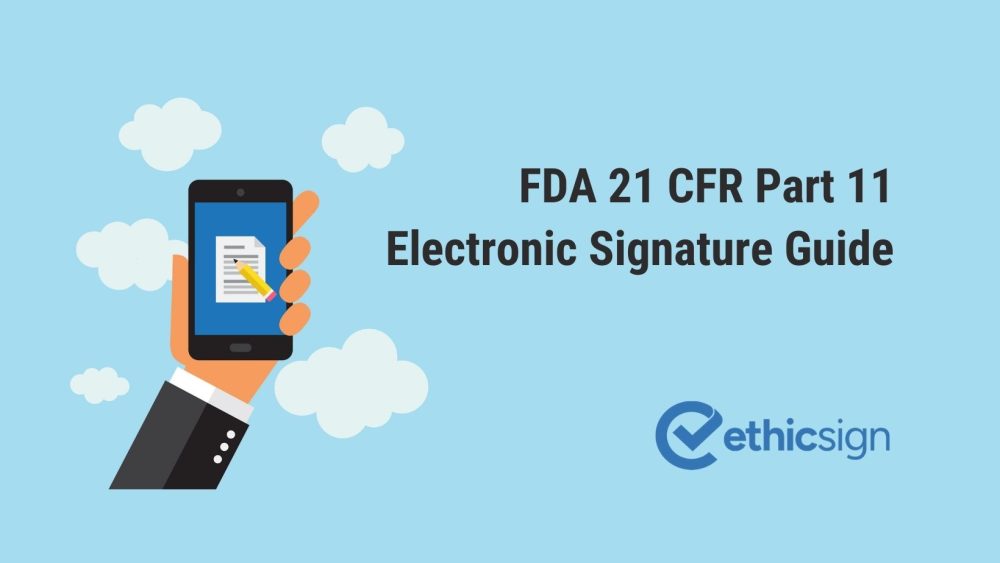FDA 21 CFR Part 11 Electronic Signature RequirementsHow to comply with FDA 21 CFR Part 11? What signature is required for FDA 21 CFR Part 11? What software can we use for FDA 21 CFR Part 11?
What is 21 CFR Part 11?
21 CFR Part 11 is a regulation by the U.S. Food and Drug Administration (FDA) that sets standards and requirements for Electronic Records and Electronic Signatures. It defines the requirements for the electronic recording, processing, and storage of health products (such as drugs, biologics, medical devices, etc.) that are regulated by the FDA.
This regulation is designed to ensure that electronic record keeping and electronic signatures are secure, accurate, and complete, and are equivalent to paper-based record keeping and signature practices. These requirements aim to ensure the traceability, security, and integrity of transactions carried out in electronic media.
21 CFR Part 11 is a mandatory requirement for all health product manufacturers, distributors, and users who wish to demonstrate compliance with FDA regulations regarding electronic record keeping and electronic signature practices.
How to ensure 21 CFR Part 11 compliance?
21 CFR Part 11 establishes standards and requirements for Electronic Record Keeping and Electronic Signature Applications. These standards and requirements include:
Electronic Record Keeping System: There are standards set by the FDA for electronic record keeping systems, which aim to ensure that electronic record keeping is secure, accurate, and complete.
Electronic Signature: The FDA’s electronic signature standards aim to ensure that signatures made in an electronic environment are secure, accurate, and complete.
Authorization Controls: Authorization controls are security measures that allow specific individuals to access and perform specific operations.
Security of Electronic Data: The security of electronic data includes protecting data against unauthorized access, alteration, or deletion.
Data Integrity: Data integrity includes protecting data from being altered or corrupted, and ensuring that any changes made are recorded.
Audit Trails: Audit trails track electronic operations and provide necessary information for audit purposes.
These standards and requirements aim to ensure the security, accuracy, and completeness of electronic record keeping and electronic signature applications, and apply to health products regulated by the FDA.
Electronic Signatures Criteria
The FDA allows the use of electronic signatures as a substitute for traditional pen and ink signatures on paper documents. However, in order to be compliant with FDA regulations, electronic signatures must meet certain criteria. These criteria include:
- Including the signer’s printed name is helpful for documentation and record keeping purposes.
- 21 CFR Part 11 does require that electronic records include a date and time stamp indicating when they were created, modified, or deleted. This information is important for ensuring the integrity of the electronic record.
- 21 CFR Part 11 does require that electronic signatures be unique to the individual, which can be accomplished through the use of a unique user ID.
- It does require that the signature be linked to the individual in a way that is secure and auditable.
- Including a signing reason can be helpful for ensuring the integrity of the electronic record and providing context for the signature.
You can take a look at the guide document called “Electronic Signatures – Scope and Application” published by the FDA.
Software Preference
According to FDA compliance requirements, you are required to use a software that meets the requirements described above to sign your reports. You can check out our product, Ethicsign, which has been specifically developed for FDA requirements.

